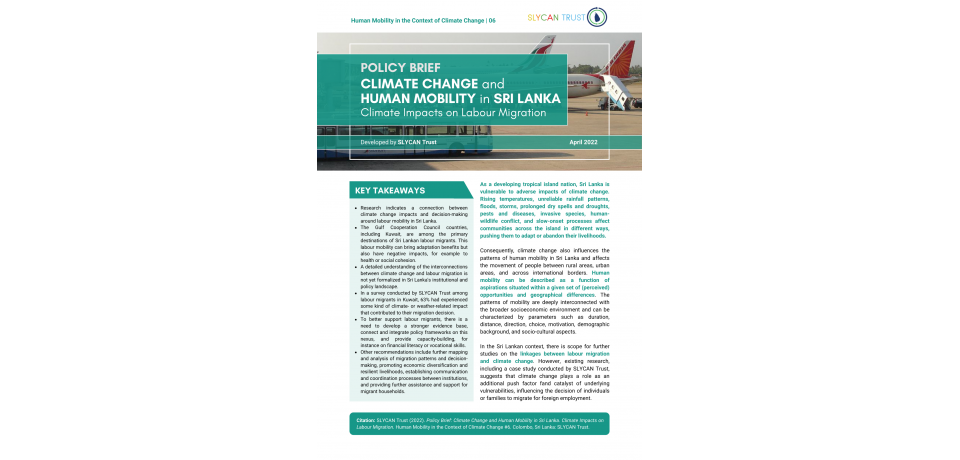Climate Change and Human Mobility in Sri Lanka: Climate Impacts on Labour Migration
Related Sustainable Development Goals and Global Compact for Migration Objectives
Climate change influences the patterns of human mobility in Sri Lanka and affects the movement of people between rural areas, urban areas, and across international borders. Human mobility can be described as a function of aspirations situated within a given set of (perceived) opportunities and geographical differences. The patterns of mobility are deeply interconnected with the broader socioeconomic environment and can be characterized by parameters such as duration, distance, direction, choice, motivation, and demographic background.
Existing research suggests that climate change plays a role for labour migration as an additional push factor and catalyst of underlying vulnerabilities, significantly influencing the decision of individuals and families to emigrate for foreign employment. Labour migration can function as a cross-regional adaptation strategy that increases the resilience of households and communities, but it can also be a maladaptive measure borne out of desperation and a (perceived) lack of alternatives. The enabling environment—consisting of policies, laws, institutions, migration governance, and social protection systems, but also sociocultural attitudes, existing networks and connections (such as relatives already in destination countries), knowledge, and gender roles—plays a key role in determining the success or failure of labour migration for adaptation and resilience-building.
This policy brief provides an overview on climate change and labour migration in Sri Lanka, including trends of foreign employment, the role of remittances, gender aspects, the enabling environment, and a detailed case study on Sri Lankan labour migration to Kuwait, which was conducted by SLYCAN Trust with the invaluable support and cooperation of the Embassy of Sri Lanka in Kuwait.
